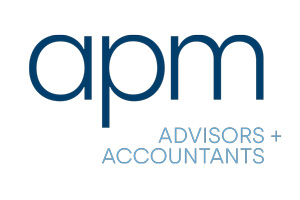Vacant residential land tax (VRLT), introduced in Victoria in 2017 for vacant properties in the middle and inner suburbs of Melbourne, has now been expanded to cover the whole State. This means that any residential property that is not used and occupied for more than 6 months during calendar year 2024 could be subject to this tax.
What follows is a general overview of the key points and exemptions. There are other exemptions and residential land factors that can be relevant beyond what is covered here. This includes deceased estates, uninhabitable land, re-zoned land and land that changes hands during the year.
What is the tax?
The tax is in addition to Land Tax and is levied as:
-
1% of Capital Improved Value (CIV) for the first year vacant; then
-
2% of CIV for a second consecutive year; and
-
3% of CIV for a third consecutive year
Example
Residential property with land worth $1,000,000 and CIV of $1,250,000 is vacant for the year. The land taxes (excluding absentee surcharges) for the first year are:
Land Tax (2024 rates) VRLT (first year) Total
Individual or company land owner $4,650 $12,500 $17,150
Trust land owner $8,163 $12,500 $20,663
When is a property “vacant”?
A property is considered vacant if it has not been used and occupied for at least 6 months during the year. The property needs to be occupied by the owner or the owner’s permitted occupier as their principal residence, or a person under a lease or short-term letting arrangement.
The use and occupation does not need to be continuous. But it is based on actual use and this should not be confused with the concept of a property being ‘available for rent’ as being sufficient to claim income tax deductions.
For example, a property that is rented out using a platform like Airbnb on and off for over six months during the calendar year would not be vacant and would be exempt from VRLT. In contrast, a property that is advertised on Airbnb and with an agent for the whole year, but is only used by tenants for 15 weeks of the year would be considered vacant as actual use is under 6 months. In the latter scenario, a landowner would have to rely on a holiday house exemption if available to avoid imposition of VRLT.
What are the main exemptions?
There are several exemptions from VRLT:
-
If the property is exempt from Land Tax it is exempt from VRLT
-
Use as a place of work or business – occupied at least 140 days a year where the owner also has another principal residence
-
Holiday home – A landowner can have one holiday home whilst also owning and occupying a principal residence and must use it as a holiday home for at least 28 days during the year
A closer look at the holiday home exemption is here.
Do trusts and companies qualify for exemptions?
It depends on when the property was acquired and who is using it.
A trust or company can apply the holiday home or business use exemptions, but only if the property is used by certain specified people and the entity owned the land in question on and before 28 November 2023. Therefore, for a discretionary trust, the people named in the trust deed and in what role/capacity will be relevant.
Given the requirement to have held the asset on 28 November 2023, VRLT is now an important consideration when looking at ownership structures for residential properties that will not be consistently rented or leased to tenants.
What is the landowner required to do?
If residential property is vacant during the year, or vacant but an exemption applies, then it is the landowner’s obligation to notify the State Revenue Office by 15th January of this status. Notification will be made through an online portal, which for January 2025 is expected to be open in December 2024.
If the property is not vacant (for instance if it has been leased all year), then there is no need to make a notification. Failure to notify could result in penalties.
Please get in touch with our team if you would like to know more about how these tax developments affect you.






